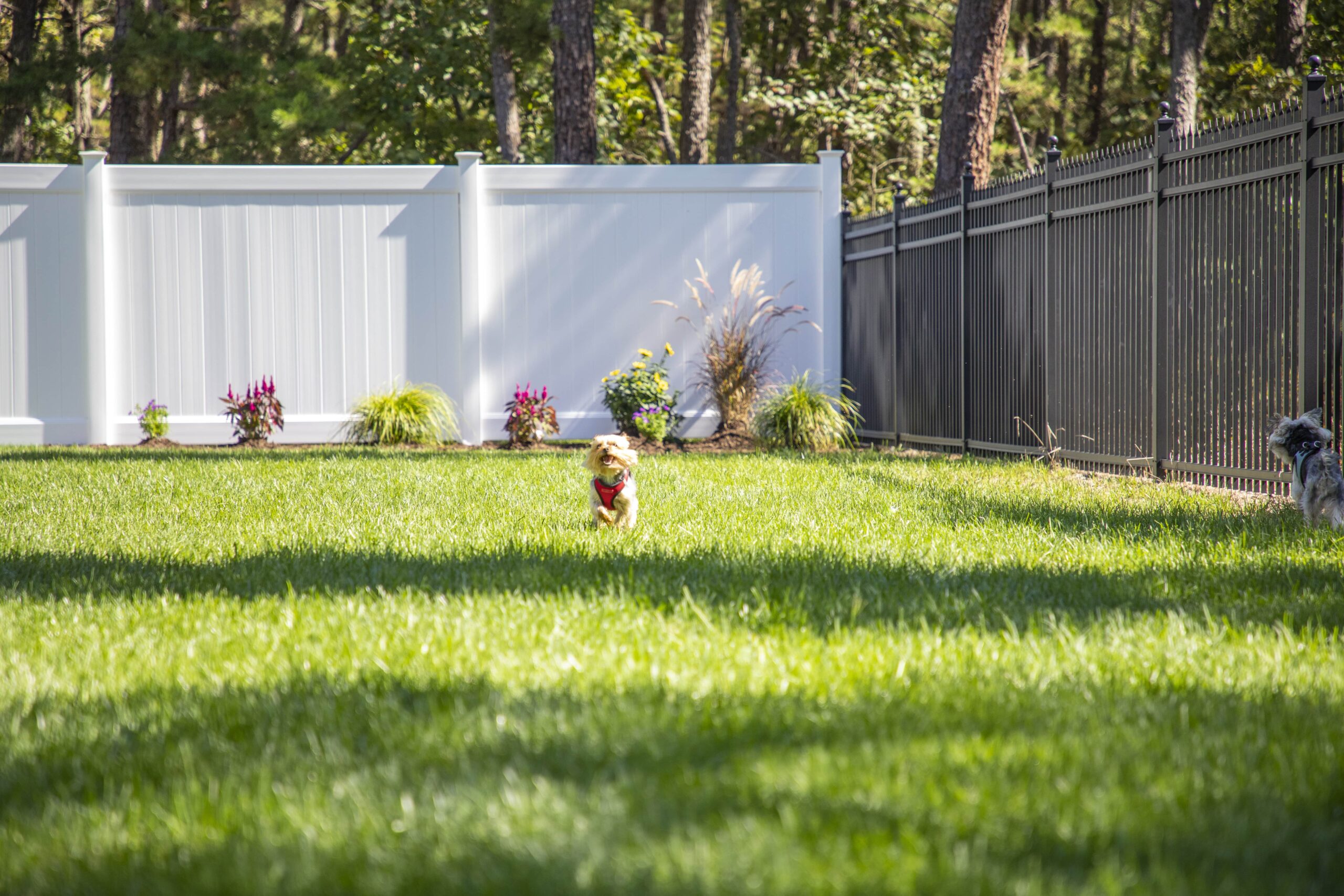All Categories
Featured

Among the most prominent choices, timber, vinyl, and light weight aluminum each offer unique advantages and downsides. Right here's a failure of the pros and cons of these three common fencing products.
Wood Fence. Wood fence has actually been a classic choice for homeowners due to its natural elegance and versatility.
Pros:. Visual Allure: Wood supplies a classic and warm appearance that matches a variety of architectural designs. Adjustable: It can be repainted, tarnished, or reduce into special layouts to fit personal choices. Cost-Effective: Initially, timber fencing can be an economical option contrasted to various other materials. Eco-Friendly: Timber is a renewable energy and can be sustainably sourced. Cons:. High Upkeep: Wood needs normal sealing, staining, or paint to avoid rot, insect damage, and weathering. Sturdiness Concerns: Without correct care, wood can warp, crack, or degeneration in time, especially in areas with high moisture. Much shorter Life-span: A wood fencing commonly lasts 10-20 years, relying on the kind of timber and degree of maintenance. Wood is perfect for those who value a conventional look and agree to commit to its upkeep.
Plastic Fencing. Vinyl is a modern-day, low-maintenance secure fencing option that has grown in appeal recently.

Pros:. Reduced Maintenance: Plastic does not call for paint, discoloration, or sealing and can be conveniently cleaned with soap and water. Climate Resistant: It holds up against extreme climate condition without decaying, rusting, or warping. Long-Lasting: Plastic fencings can last 20-30 years with minimal maintenance. Selection of Styles: Available in several colors, styles, and appearances, some vinyl options mimic the look of wood. Disadvantages:. Greater Upfront Expense: Vinyl secure fencing can be more pricey originally contrasted to timber. Brittleness in Winter: In severe cool, vinyl might fracture or become weak. Minimal Repairs: Specific panels can be tough to replace, needing careful matching to the existing fencing. Vinyl is finest fit for home owners looking for a durable, low-maintenance service with modern-day aesthetics.
Light Weight Aluminum Fencing. Aluminum secure fencing is a durable and light-weight choice, usually selected for its modern-day look and flexibility.
Pros:. Rust-Resistant: Light weight aluminum does not corrosion, making it an outstanding option for damp or moist environments. Low Upkeep: Requires marginal upkeep and is simple to tidy. Sturdy: While lightweight, aluminum is solid enough to withstand many ecological conditions. Long Life expectancy: Can last numerous years without considerable wear or wear and tear. Selection of Styles: Supplies a elegant and smooth appearance, often used for ornamental or ornamental purposes. Disadvantages:. Higher Cost: The first financial investment for aluminum secure fencing is greater than wood or vinyl. Much Less Privacy: Light weight aluminum fencings are often created with open pickets, making them much less reliable for privacy. Vulnerable to Damages: Although sturdy, aluminum can be dented by strong effects. Aluminum is perfect for those seeking an elegant, long-lasting choice that calls for minimal care.
Making the Right Choice. Each secure fencing material-- plastic, wood, and light weight aluminum-- provides unique benefits and drawbacks. Your choice should rely on your specific priorities, such as spending plan, upkeep preferences, environment, and visual objectives:
If you like a conventional appearance and don't mind routine maintenance,Select timber. Select plastic if you desire a low-maintenance, weather-resistant fence with modern-day appeal. Opt for light weight aluminum if you prioritize longevity, corrosion resistance, and a sleek style. By considering these disadvantages and pros, you can pick a fence product that boosts your home while satisfying your useful requirements.
Latest Posts
Learn About Best Car Repair Services offered by Montclare Auto Repair – Drive with Confidence
Published May 29, 25
1 min read
The Benefits of Regular Auto Maintenance at Montclare Auto Repair Keeps Your Wallet Happy
Published May 27, 25
1 min read
Selecting the Right Roof Color: Effect On Energy Performance
Published May 22, 25
1 min read
More
Latest Posts
Learn About Best Car Repair Services offered by Montclare Auto Repair – Drive with Confidence
Published May 29, 25
1 min read
The Benefits of Regular Auto Maintenance at Montclare Auto Repair Keeps Your Wallet Happy
Published May 27, 25
1 min read
Selecting the Right Roof Color: Effect On Energy Performance
Published May 22, 25
1 min read